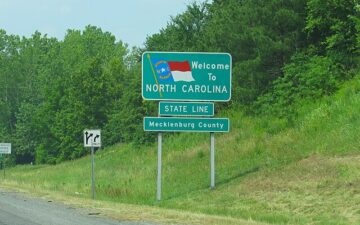Our clients were, in their words “swimming in data soup.” They often had to collaborate together on county and town-level projects, and wanted to ensure that they were using numbers from the same data sources and had the same understanding about the status of their community. Their goal: to align around their work and their messaging around that work.
They enlisted Carolina Demography to streamline their existing processes for acquiring, updating, and maintaining the data they used for their community reports and presentations and to inform decision-making by local governments, businesses, and non-profits. We set out to develop an integrated, well-documented database of indicators that could be updated regularly in future years; and to develop methods for presenting the material to their stakeholders.
We first made sure that we could replicate the existing data that the Chamber maintained – and then developed a database of over 50 economic, demographic, education, health, and environmental indicators that could be updated in future years. In addition, we developed documentation that indicated:
It’s important to note that this project was a true partnership – the data was provided by partner organizations across the county and state. We combined the resources available to make it workable for the clients’ use cases, and continually worked with our stakeholders throughout the project to ensure that the data and communications efforts met their needs.
Our broad range of community data and analysis have supported public policy and business decisions in Orange County. They have also provided the data content for the Chamber’s annual State of the Community presentation to help local governments and businesses better understand existing and future demographic trends in the county and surrounding area.
Chamber for a Greater Chapel Hill-Carrboro, Orange County, Towns of Chapel Hill, Hillsborough, Carrboro
To develop a system for populating, updating, and maintaining a critical data resource about a local community
2020 State of the Community Databook

The U.S. Census Bureau recently released an expanded version of the Veteran Employment Outcomes (VEO) data, offering insights into the earnings and employment outcomes of more than 2.8 million formerly enlisted service members. In this blog post, we explore what…

In recent weeks, we’ve received many data requests from journalists and community leaders across North Carolina about the state's foreign-born population. This heightened interest is largely driven by concerns about how the new presidential administration’s policies may affect North Carolina.…

Breast cancer is the most diagnosed cancer in women and second leading cause of cancer-related death after lung cancer. One in eight women will be diagnosed with breast cancer within their lifetime, and one in 43 will die from breast…
Your support is critical to our mission of measuring, understanding, and predicting population change and its impact. Donate to Carolina Demography today.